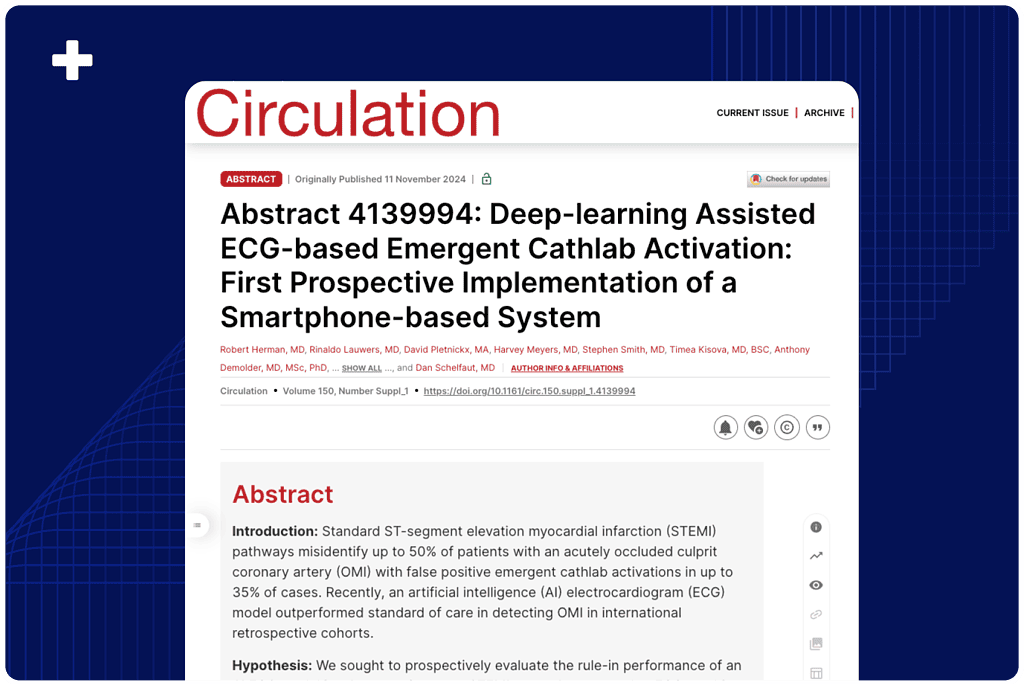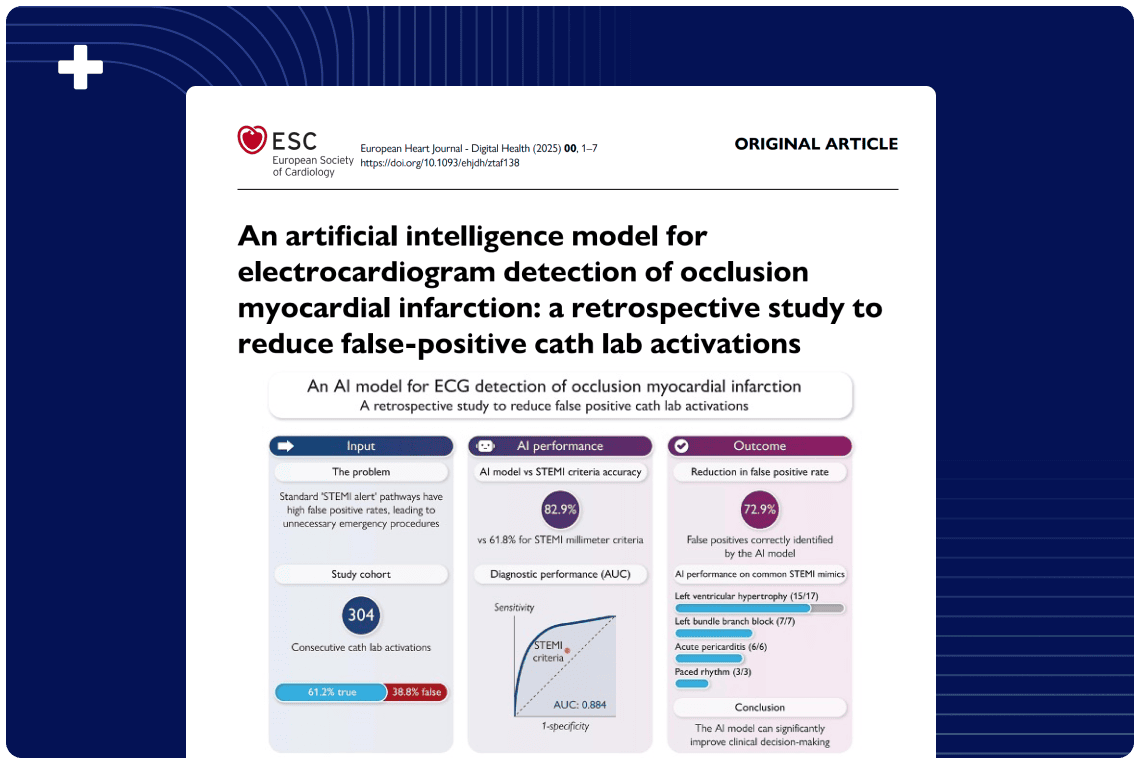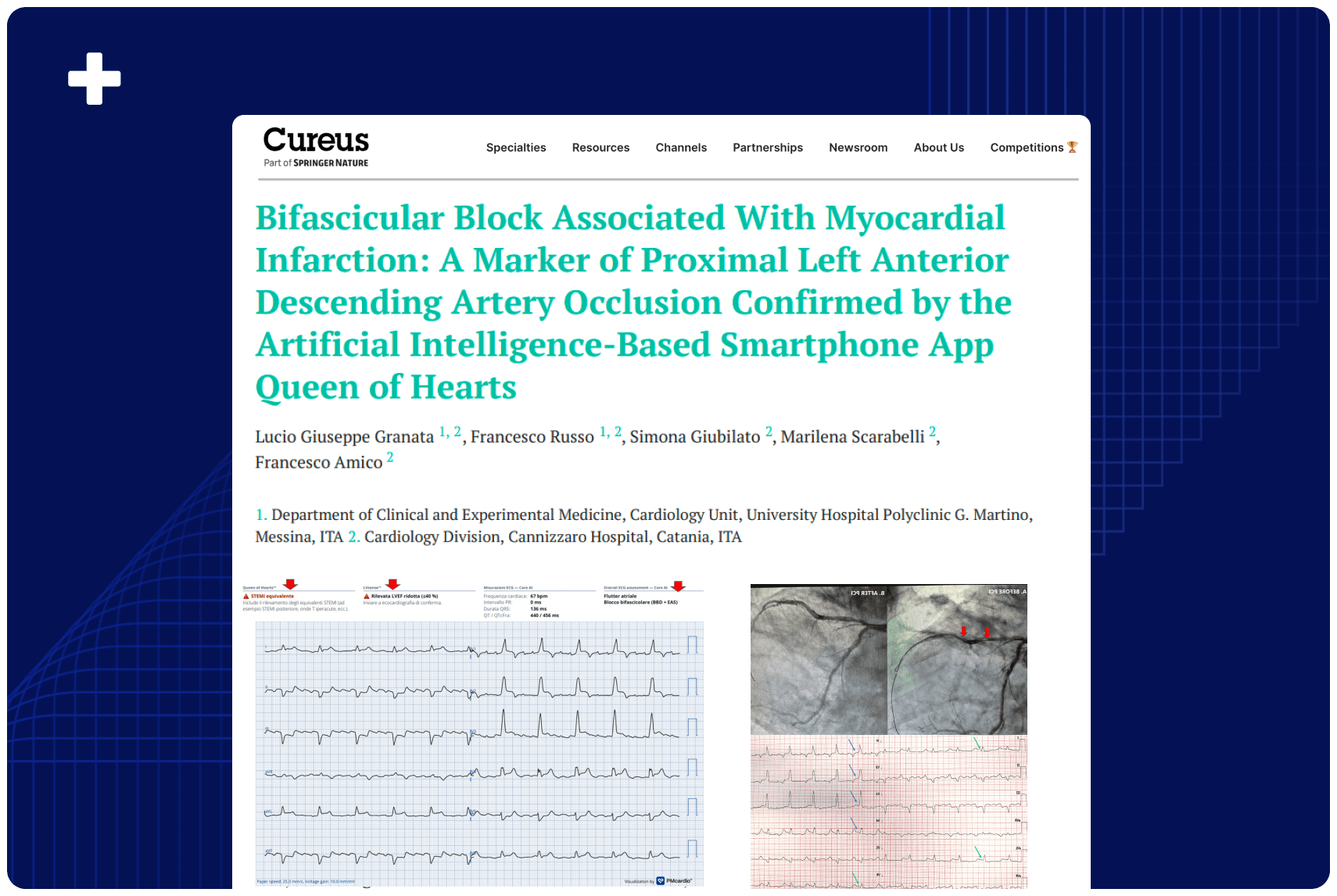Overview
In its first prospective performance evaluation, the PMcardio STEMI AI ECG Model outperformed standard ECG machine readings, detecting high-risk coronary blockage with 95.7% sensitivity vs. 47.8%. By correctly flagging 15 initially missed patients, the AI model demonstrated its potential to strengthen triage accuracy and accelerate life-saving decisions.
Published In: Circulation (AHA Journals) – presented at the American Heart Association (AHA) 2024 Scientific Sessions
Presented Date: November 11, 2024
Background
Standard ST-segment elevation myocardial infarction (STEMI) pathways misidentify up to 50% of patients with an acutely occluded culprit coronary artery (OMI) with false positive emergent cathlab activations in up to 35% of cases. Recently, an artificial intelligence (AI) electrocardiogram (ECG) model outperformed standard of care in detecting OMI in international retrospective cohorts.
We sought to prospectively evaluate the rule-in performance of an AI ECG model in a large tertiary care STEMI network compared to ECG machine readings of STEMI and AI-assisted emergency physicians.
Methods
An AI model trained to detect acute coronary occlusion regardless of ST elevation was implemented using smartphones in a tertiary care STEMI network consisting of 1 hub hospital, 1 spoke center, and 2 emergency medical service crews (EMS) (Fig 1A). Outcomes of all patients presenting with atraumatic chest pain during a 10-week period between January and March 2024 were adjudicated using ECG, laboratory, and angiographic chart review and classified based on the presence of OMI.
Results
A total of 731 consecutive patients (68% male) with atraumatic chest pain were included; 142 patients were hospitalized of whom 23 (16%) met the primary outcome of OMI. The AI model showed a significantly higher sensitivity detecting OMI as compared to ECG machine (95.7% vs. 47.8%, p<0.001, Fig 1B) at comparable specificity (95% vs. 96%, respectively) with overall superior predictive accuracy (Chi-squared=8.1; p=0.004). The AI model correctly identified 15 cases that the ECG machine misclassified (80% were false negatives by ECG machine). All AI false positives were patients post recent myocardial infarction or angioplasty. Sensitivity of AI-assisted emergency physicians interpreting OMI was 78.2% indicating potential instances of AI underutilization.
Conclusion
This first prospective performance evaluation in a large all-comer atraumatic chest pain cohort indicates high accuracy of unbiased, AI-powered ECG detecting acute coronary occlusion. The findings suggest its potential to improve ACS patient outcomes through timely referral for invasive management in a real-world clinical setting.
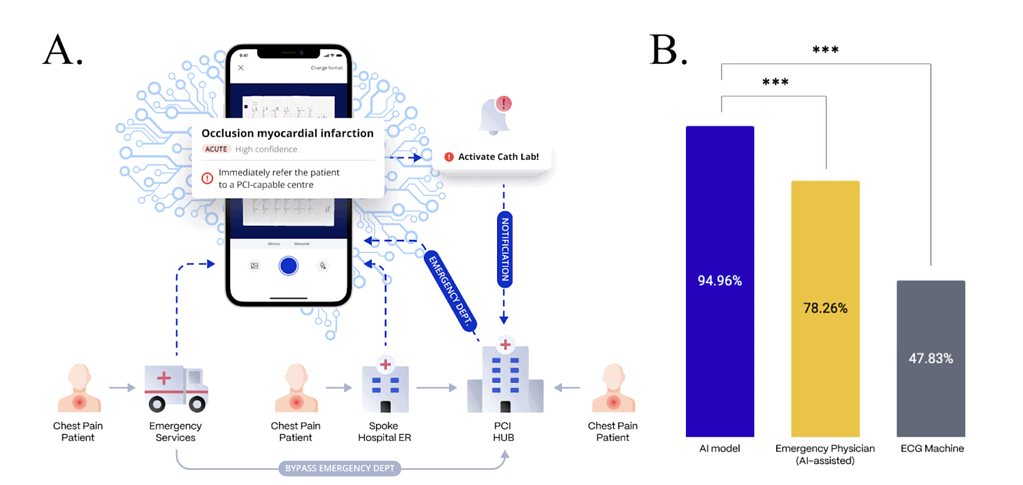
Authors: Robert Herman, MD, Rinaldo Lauwers, MD, David Pletnickx, MA, Harvey Meyers, MD, Stephen Smith, MD, Timea Kisova, MD, BSC, Anthony Demolder, MD, MSc, PhD, Peter Herman, Student, Radka Grendova, MA, Monika Beles, MS, Leor Perl, BSC, MD, Olivier Nelis, BSC, Emanuele Barbato, MD, Jozef Bartunek, MD, Dan Schelfaut, MD

